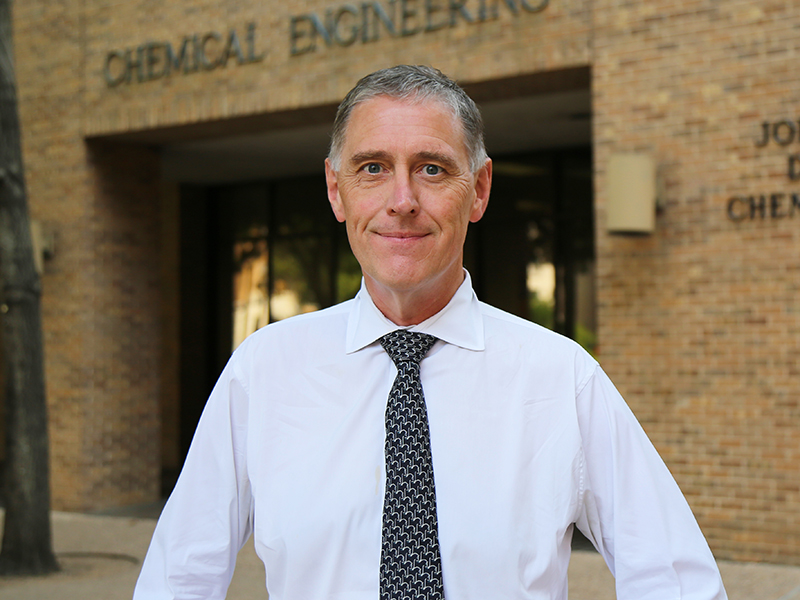An international research team that includes Benny Freeman, professor in the Cockrell School’s McKetta Department of Chemical Engineering, has pioneered a new filtration technique that could dramatically reduce the amount of time it takes to extract lithium from the earth, taking the process from months and years to hours. This could improve the supply of lithium, which is essential for enabling electric vehicles and for the integration of renewable energy sources.

Benny Freeman, professor in the Cockrell School of Engineering’s McKetta Department of Chemical Engineering
Inspired by the precise filtering capabilities of a living cell, the team developed a synthetic Metal-Organic Framework (MOF) channel membrane that is exactly tuned, in both size and chemistry, to filter lithium ions in an ultra-fast, one-directional and highly selective manner.
Their findings, presented in the March 9 issue of Nature Materials, demonstrate how their channel can mimic the filtering function, or ion selectivity, of biological ion channels embedded within a cell membrane.
This discovery opens up the possibility to create a revolutionary filtering technology that could substantially change the way in which lithium-from-brine extraction is undertaken. Lithium-from-brine extraction occurs in some sites across the U.S. but is most common in the Lithium Triangle, a region of the Andes bordering Argentina, Bolivia and Chile, which holds roughly half of the world’s lithium reserves. Preliminary studies have shown that the team’s technology has a lithium recovery rate of approximately 90 percent, significantly higher than the 30 percent recovery rate using the current solar evaporation process.
The research team was led by Monash University in Australia and, in addition to Freeman, included collaborators from CSIRO, Australia’s national science agency, and the University of Melbourne.
“Thanks to the international, interdisciplinary and collaborative team involved in this research, we are discovering new routes to very selective separation membranes,” Freeman said. “We are both enthusiastic and hopeful that the strategy outlined in this paper will provide a clear roadmap for resource recovery and low-energy water purification of many different molecular species.”
The technology is the subject of a worldwide patent application filed in 2019. Energy Exploration Technologies Inc. has since executed a worldwide exclusive license to commercialize it.
“It’s truly an honor to work with such brilliant scientists at all of these organizations,” said Teague Egan, founder and CEO of Energy Exploration Technologies. “This breakthrough invention will literally change the way lithium is produced and how we power our future.”
Benny Freeman is an expert in polymer membranes for liquid, gas and vapor separations. He leads the Center for Materials for Water and Energy SysTems (M-WET), a multi-university research center headquartered at UT Austin that addresses basic knowledge gaps in the development of next-generation, polymer membrane-based water purification technologies.
